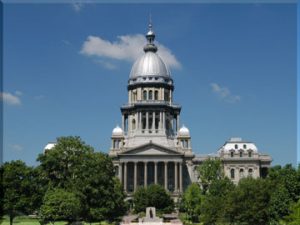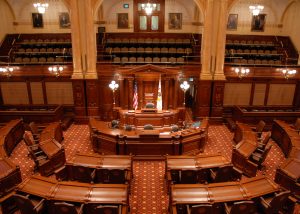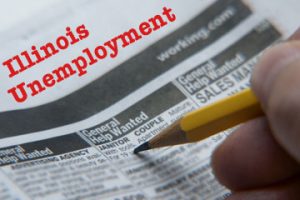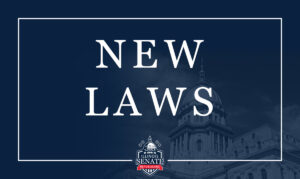Lame-Duck Session Underway

SPRINGFIELD – Illinois lawmakers are heading back to Springfield on January 4 for a “lame-duck session” to tackle the remaining business of the 103rd General Assembly.
In years when they occur, lame-duck sessions are held after the election and the Fall Veto Session, and before newly elected lawmakers are sworn into office. State Senator Dave Syverson (R-Cherry Valley) says it’s widely seen as a time when outgoing legislators may be more likely to vote in favor of controversial legislation without fear of political repercussions.
The most recent lame-duck session took place in January 2023 and saw the passage of a weapons ban and an expansion of abortion services. The 2021 lame-duck session led to the passage of the controversial SAFE-T Act. Back in 2011, the lame-duck session led to the passage of a 67% increase in the state’s income tax.
New General Assembly A Time to Welcome Opportunities

The 104th biennial General Assembly will convene on January 8. Senator Syverson will participate in inaugural ceremonies in the State Capitol.
The convening of a new two-year General Assembly is a time for lawmakers to reflect on the lessons of the past, renew their commitment to finding solutions for current challenges, and embrace new opportunities for Illinois. Senator Syverson says the state faces significant challenges, making it critical for Senate members to focus on collaboration rather than getting mired in partisan bickering.
The Illinois state budget faces a projected deficit of more than $3 billion in the next fiscal year, due in part to a significant increase in state spending fueled by temporary federal funds. Spending growth has been further driven by Governor JB Pritzker’s initiatives, including programs for noncitizens, such as free healthcare, which cost Illinois taxpayers over $1 billion annually. To support these programs, the Governor recently enacted $1 billion in tax increases.
Senator Syverson is urging Governor Pritzker to balance the upcoming budget without raising taxes, as struggling Illinoisans cannot afford to cover the cost of the Governor’s self-made budget crisis.
The 35th District Senator encourages residents to join the call for no new taxes by signing his petition at https://senatordavesyverson.com/tell-governor-pritzker-no-new-tax-hikes/ to make their voices heard.
Unemployment Numbers Troublesome

The end of 2024 brought little relief for Illinois workers, with unemployment remaining stubbornly high at levels well above the national average.
State reports showed Illinois companies announced 1,176 layoffs in November. October’s unemployment rate of 5.3% was the third highest in the nation, with job reports indicating an estimated 346,000 Illinoisans were seeking work. Meanwhile, Illinois ranked 37th in the nation for business tax climate, according to the Tax Foundation’s 2024 State Business Tax Climate report.
Senator Syverson stated that fiscal responsibility, balanced budgets, and common-sense economic growth initiatives are opportunities that could help boost jobs and restore prosperity to Illinois communities.
New Laws for The New Year

With the dawning of the new year, 293 new laws took effect on January 1, addressing a wide range of issues impacting Illinois residents.
The laws include workplace protections, insurance protection expansions, public safety measures, environmental initiatives, and issues impacting schools and students. Other new laws focus on supporting veterans, environmental changes, and updated workplace requirements across Illinois. Additionally, the final phase of Illinois’ minimum wage increase will bring wages up to $15 per hour for workers aged 18 and older.
Click https://senatordavesyverson.com/wp-content/uploads/2024/12/New-Laws-Taking-Effect-January-1_2025.pdffor a full list of new laws taking effect January 1.

